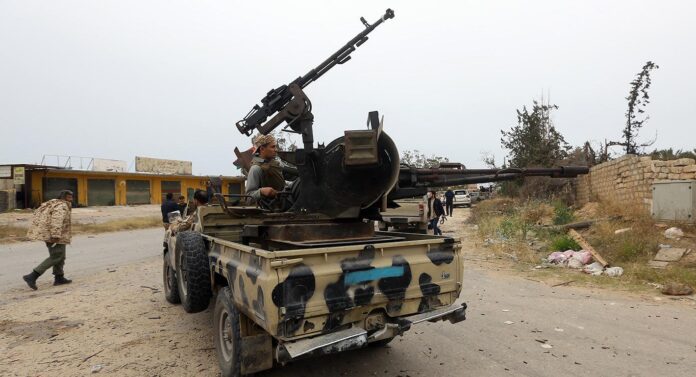Author: Paul Stronski
Affiliation: Carnegie Endowment for International Peace
Organization/Publisher: Carnegie Endowment for International Peace
Date/Place: June 2, 2020/ Washington DC, USA
Type of Literature: Commentary
Word Count: 1797
Keywords: Russia, Foreign Policy, Private Military Companies, Defense and Security, Military
Brief:
Paul Stronski sheds light on the evolving role of Russian private military companies (PMC) as an influential instrument for Russian foreign policy in many conflict areas around the world. Russia deploys PMCs in many areas including Libya, Syria, the Central African Republic (CAR), etc. The author claims that this strategy of using “surrogates” is a traditional practice of the Russian and Soviet foreign policies in achieving geopolitical reach and interests. PMCs are considered attractive tools for foreign policy due to its low-cost, deniability, and few risks. Stronski focuses on Wagner, the best-known Russian PMC under the control of Yevgeniy Prigozhin, who is an associate of Russian President Vladimir Putin. Its utility has significantly manifested as a flexible foreign policy tool that helps promote the activist Russian role in many warfare areas, especially in Ukraine, Syria, and Libya. He underlines that the main features of Wagner make it an attractive option. In Libya, for instance, Wagner’s deployment enables Russia to pursue its strategy as a “game-changer” at low risks and high gain. Generally, casualties by PMCs are not counted by the Russian military officials. Moreover, PMCs’ low-costs emanate from being private entities that freely finance their operations without imposing additional burdens on the budget of the government. It is also an expendable and deniable tool that the government can deny its involvement in any claimed warfare. Another feature of PMCs is lack of legal status, which is greatly utilized in “gray-zone warfare” and risky situations where the government is not holding the responsibility of its operations, especially in cases that violate international laws, agreements or political commitments. Additionally, Russia enhances and empowers PMCs to provide business opportunities with global reach by facilitating their access to new markets using diplomatic leverage. Finally, Stronski wonders if Russia will curtail its global ambitions and focus domestically under the diminished resources and economic decline caused by the pandemic. He claims that this is unlikely since such decline will push more volunteers to join PMCs, and that there will be a tendency to increase PMCs in new “global hotspots” to expand Russian foreign policy goals.
By: Yomna Süleyman, CIGA Research Assistant




